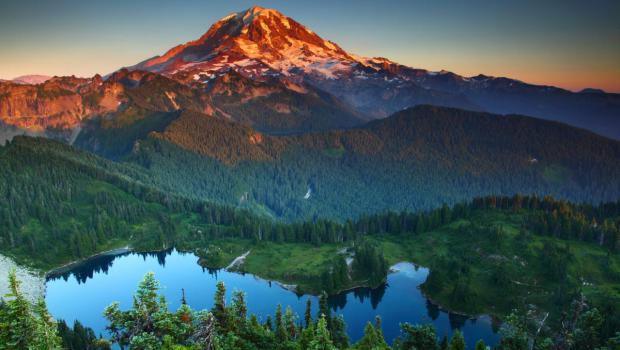
ABOUT THE COURSE
lawGEN 15sc
Prerequisites: None
This seminar will study and examine the varied environmental and resource challenges facing Indian reservations in the western United States. Over 360 Indian reservations, the majority of which are in the western United States, encompass over 56 million acres – a land total approximating the size of the State of Idaho While Indian treaties and executive orders often relegated tribes to isolated and unwanted lands, Indian reservations frequently contain valuable natural resources such as oil, gas, hard minerals, and forests. Many Indian tribes, moreover, enjoy special fishing rights and the legal right to vast amounts of water. At the same time, Indian reservations face serious environmental challenges, including water contamination, habitat decline, and climate change.
To examine these questions, we will start with a week of classroom study and discussion. During this week, we will examine the nature of the environmental and resource challenges facing Native American tribes today, the relevant ins and outs of federal Indian law and the legal rights of tribes, Native American governmental systems, and the approaches that tribes are currently taking to these challenges. We will then move into the field and spend approximately ten days in the states of Washington, Montana, and Wyoming, meeting with tribal officials and seeing firsthand the environmental and resource challenges that they face. On our return to Stanford, students will break into groups, and each group will analyze a particular challenge facing a Native American tribe and how best to address that challenge. The course will culminate in student presentations on these analyses.
Over the summer, students also will be responsible for assigned readings, online interactive materials, and relevant recent news articles.
The class begins on-campus and then travels to Washington, Montana, and Wyoming. Travel expenses during the course will be provided (except incidentals) by the Bill Lane Center for the American West and Sophomore College.
INSTRUCTOR BIO
 Barton “Buzz” Thompson is the Robert E. Paradise Professor of Natural Resources Law at Stanford University and the Perry L. McCarty Director & Senior Fellow of the Stanford Woods Institute for the environment. He has written extensively on the sustainable management of water, fisheries, and other resources and has worked with Native American tribal officials throughout the West on Indian water rights. He also currently serves as the Special Master for the United States Supreme Court in an interstate water dispute between Montana and Wyoming over the waters of the Yellowstone River system. He holds an AB in Economics, an MBA in business, and a JD in law, all from Stanford University. He serves on the boards of numerous conservation organizations and was a member of the Science Advisory Board of the United States Environmental Protection Agency.
Barton “Buzz” Thompson is the Robert E. Paradise Professor of Natural Resources Law at Stanford University and the Perry L. McCarty Director & Senior Fellow of the Stanford Woods Institute for the environment. He has written extensively on the sustainable management of water, fisheries, and other resources and has worked with Native American tribal officials throughout the West on Indian water rights. He also currently serves as the Special Master for the United States Supreme Court in an interstate water dispute between Montana and Wyoming over the waters of the Yellowstone River system. He holds an AB in Economics, an MBA in business, and a JD in law, all from Stanford University. He serves on the boards of numerous conservation organizations and was a member of the Science Advisory Board of the United States Environmental Protection Agency.
 Bruce E. Cain is a professor of Political Science at Stanford University and Director of the Bill Lane Center for the American West. He received a B.A. from Bowdoin College, a B.Phil. from Oxford University as a Rhodes Scholar, and a Ph.D. from Harvard University. Professor Cain was Director of the Institute of Governmental Studies at UC Berkeley from 1990 to 2007 and Executive Director of the UC Washington Center from 2005 to 2012. He has won awards for his research (Richard F. Fenno Prize, 1988), teaching (Caltech 1988 and UC Berkeley 2003), and public service (Zale Award for Outstanding Achievement in Policy Research and Public Service, 2000). His areas of expertise include political regulation, applied democratic theory, representation, and state politics.
Bruce E. Cain is a professor of Political Science at Stanford University and Director of the Bill Lane Center for the American West. He received a B.A. from Bowdoin College, a B.Phil. from Oxford University as a Rhodes Scholar, and a Ph.D. from Harvard University. Professor Cain was Director of the Institute of Governmental Studies at UC Berkeley from 1990 to 2007 and Executive Director of the UC Washington Center from 2005 to 2012. He has won awards for his research (Richard F. Fenno Prize, 1988), teaching (Caltech 1988 and UC Berkeley 2003), and public service (Zale Award for Outstanding Achievement in Policy Research and Public Service, 2000). His areas of expertise include political regulation, applied democratic theory, representation, and state politics.



